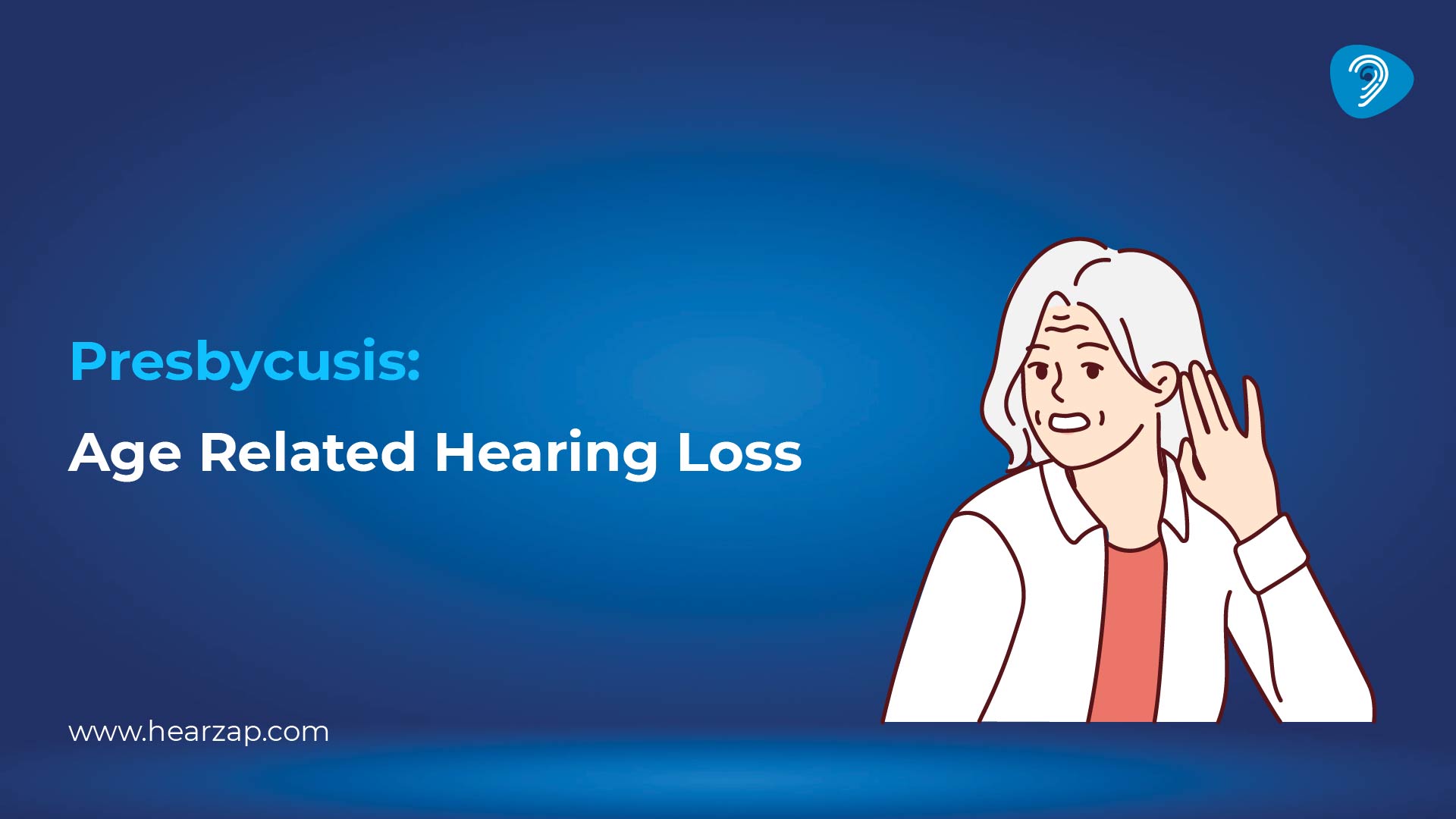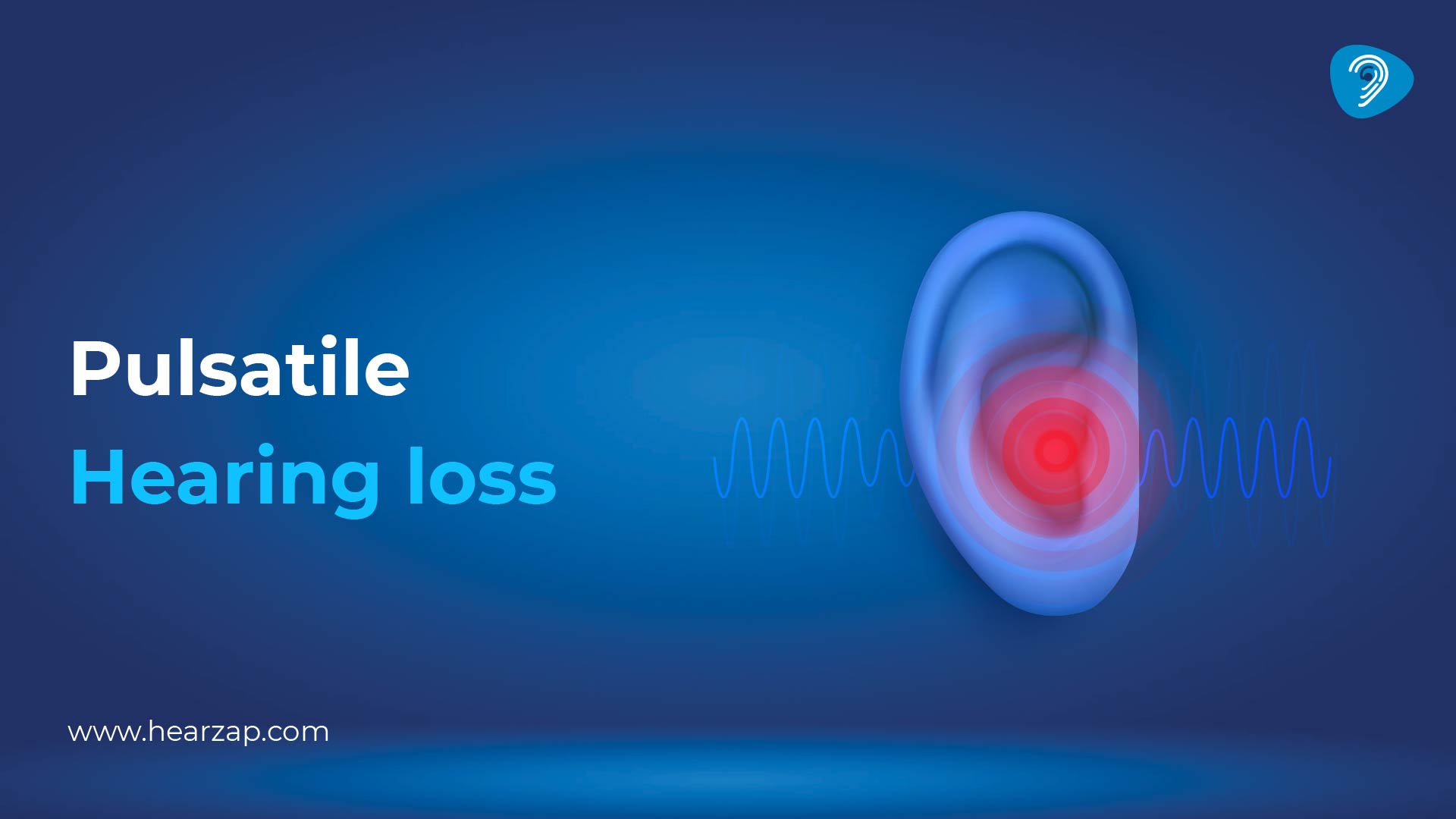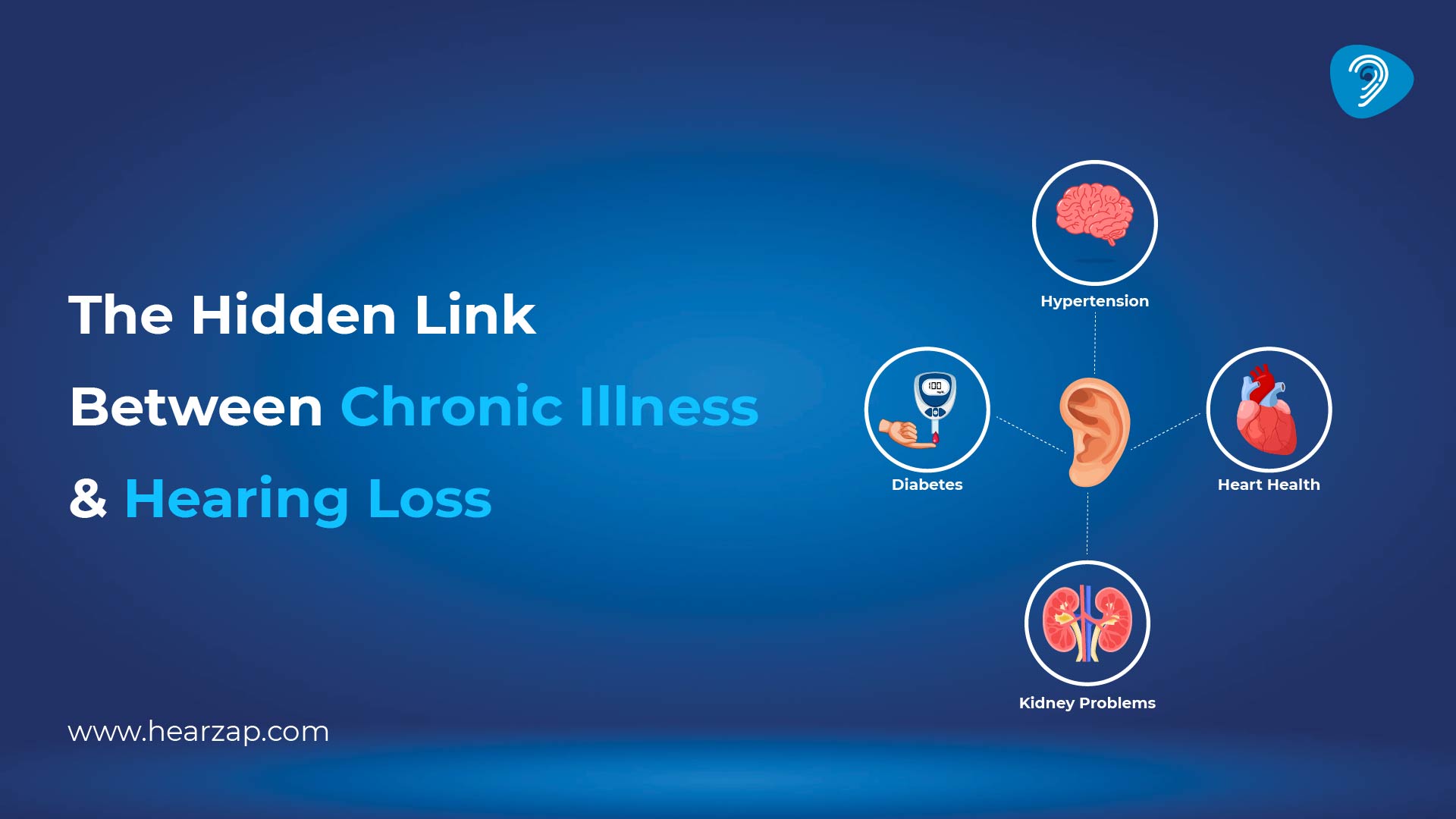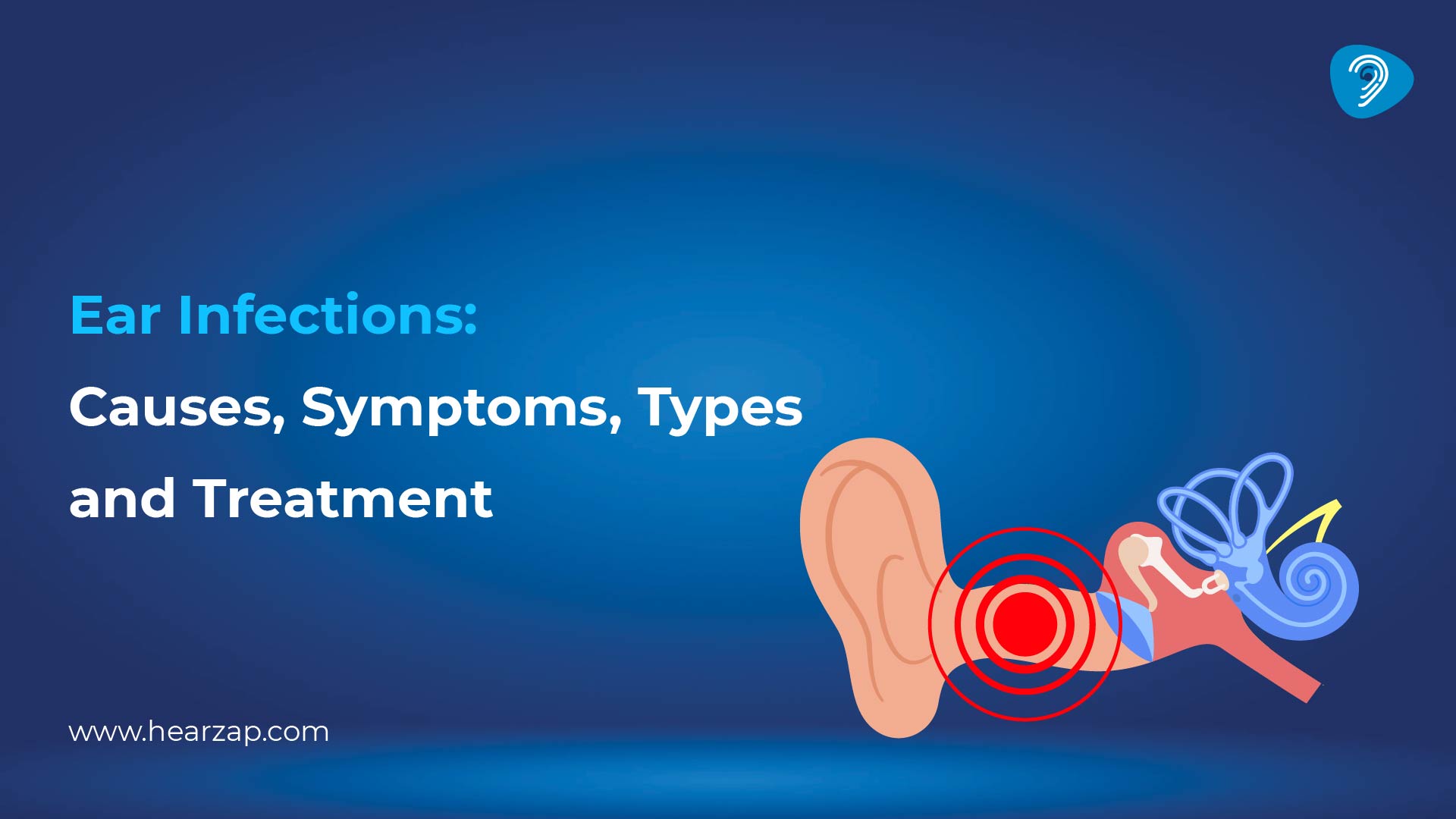Generic
Presbycusis (Age-Related Hearing Loss)
By Team Hearzap | July 21, 2025

Presbycusis: What You Should Know About Age-Related Hearing Loss
As we age, our bodies go through a lot of changes. Some of them are like grey hair or weaker eyesight. But one change many people don’t talk about enough is hearing loss. It doesn’t happen overnight, but slowly, sound starts to feel a little more distant. Conversations become harder to follow. The TV volume creeps up. That’s where presbycusis comes in.
Presbycusis is a common type of hearing loss that happens naturally as we grow older. It affects millions of people, but many don’t realise they have it until it starts to interfere with daily life. It’s manageable and the earlier you catch it, the better.
Let’s explore what this condition is, what causes it, how to spot the signs, and what you can do about it.
What is Presbycusis?
To put it simply, it’s age-related hearing loss. It usually starts gradually and affects both ears equally. High-pitched sounds are often the first to go like birds chirping, the ding of a microwave, or the voices of children and women. This makes normal conversations difficult. Male voices are easier to understand.
Presbycusis definition: it is a type of sensorineural hearing loss, which means it’s caused by changes in the inner ear or the nerves that help carry sound to the brain. It’s not something you can see or feel but over time, it becomes noticeable.
What Causes It?
Presbycusis doesn’t have just one cause. Instead, it's a mix of several factors coming together over time:
- Natural aging wears out the tiny hair cells in your inner ear that help process sound.
- Long-term noise exposure from loud music, machinery or city life can add up and damage your hearing.
- Diabetes, high blood pressure, and high cholesterol can impact blood flow to the ears.
- Genetics also plays a role. If hearing loss runs in your family, you may be more likely to experience it.
- Certain medications are known to affect hearing over time.
Presbycusis is one of the most common hearing problems in old age.
How Do You Know If You Have It?
The early signs of presbycusis are easy to miss. Many people assume others are mumbling or that background noise is just too loud. But here are some red flags to watch for:
- You have trouble hearing in noisy places, like restaurants or family gatherings.
- You often ask people to repeat themselves.
- You think everyone else is talking too softly.
- You feel mentally drained after conversations.
- You notice a constant ringing in your ears (tinnitus).
If any of this sounds familiar, it might be time for a hearing check. Visit hearzap.com and take a free virtual hearing test from your phone.
Getting a Diagnosis
Diagnosing presbycusis is pretty straightforward. An audiologist will perform a few simple tests, and get an audiogram report. It is a chart that shows how well you hear different pitches and volumes. A presbycusis audiogram typically shows hearing loss in both ears, especially in the higher frequencies.
There’s no discomfort involved, and the results give a clear picture of how much support your hearing might need.
Is Presbycusis Reversible?
The honest answer is no, presbycusis isn’t reversible. Once the inner ear’s hair cells are damaged, they don’t grow back. But that doesn’t mean nothing can be done.
In fact, there are plenty of tools and treatments that can help you hear better, stay socially active, and improve your overall quality of life.
What Can Help?
The best treatment depends on your specific needs, but here are a few commonly recommended options:
- Hearing aids: Today’s hearing aids are smart, discreet, and effective. Hearing loss can cause dementia and using hearing aids will prevent that. Age-related hearing loss can be battled using hearing aids.
- Assistive listening devices: Tools like amplified phones, TV streamers, and alerting systems can make daily life easier.
- Aural rehab: Some people benefit from training that helps them adapt, lip-read, or improve communication in tricky situations.
- Managing health conditions: Keeping conditions like hypertension or diabetes under control can help slow further hearing decline.
The goal isn’t just to hear more but to live better.
Why Early Action Matters
You might be surprised how much untreated hearing loss affects your life. It can lead to frustration, strained relationships, social withdrawal, and even cognitive decline. In fact, studies show a strong connection between age related hearing loss and dementia.
That’s why acting early makes all the difference. Even small improvements in hearing can bring back confidence, connection, and peace of mind.
Living Well with Presbycusis
Presbycusis doesn’t have to hold you back. With the right support, you can enjoy conversations, stay engaged, and feel like yourself again.
If you’re over 50 and haven’t had your hearing tested in a while, don’t wait. A quick check-up could change everything.
Need help hearing better? Book a free consultation with our expert audiologist at Hearzap. We're here to help you hear life more clearly.
Also Read: Age Related Hearing Loss: What to Expect and How to Manage It
FAQs
Is presbycusis unilateral or bilateral?
It’s usually bilateral, meaning it affects both ears equally over time.
What is the meaning of presbycusis?
Presbycusis means gradual hearing loss that happens as a natural part of aging.
What is the main cause of presbycusis?
The main cause is the slow degeneration of the inner ear's hair cells due to aging and wear over time.
What is the difference between presbycusis and presbyopia?
Presbycusis affects your hearing, while presbyopia affects your vision. Both are age-related but involve different senses.
Contact us
We are here for all your hearing needs, from hearing tests to hearing aids. Fill out the form below, and we will give you a call soon.
Please enter a valid mobile number with 10 digits.
Recent Blogs
By None | Jan. 22, 2026
By None | Jan. 20, 2026
By None | Jan. 12, 2026
By None | Jan. 6, 2026
By None | Jan. 5, 2026













